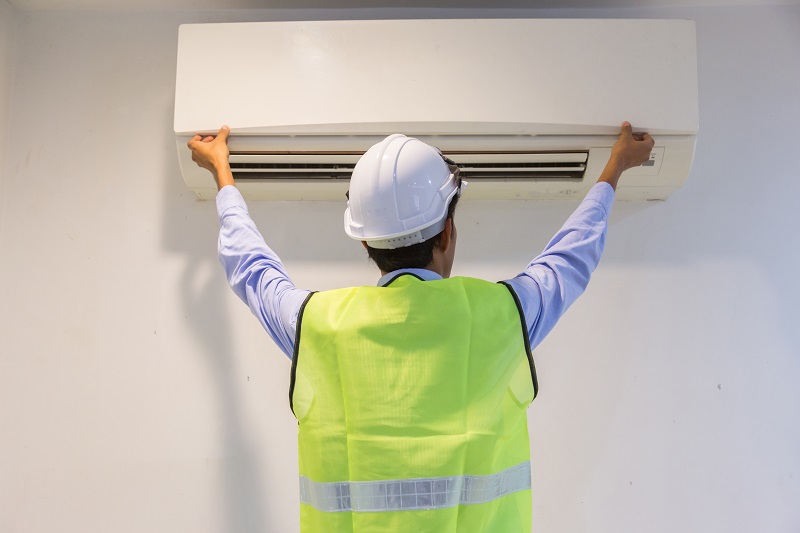Whether you are running a small retail store, café, or restaurant, or you are the owner of a huge office building, shopping mall or hotel chain, you need a robust commercial air conditioning system to keep your clients, customers, staff members, and visitors cool. Depending on your needs, AC systems may come with varying cooling capacities, setup and layouts, energy efficiency ratings, and other factors that you need to consider while choosing one for your facility. There are three major types of commercial air conditioners to choose from, which are the VRV system, multi-split system, and a single split system. All of them have a ceiling or wall-mounted indoor unit, but you need to choose the one as per your business applications. Let’s find out more about these AC types.

VRF Type Commercial Air Conditioning
Variable Refrigerant Flow or VRF is a popular system used for large commercial operations, such as retail spaces, shopping malls, large offices, hotels, mix-use buildings, etc. These systems are reliable, easy to operate, high in performance, and energy-efficient. If you have a large space, this type of commercial air conditioning system can meet all your cooling requirements. They are also easy and fast to install without disrupting your regular operations. This system can deliver cooling and heating effects to several areas at a time, making it a perfect choice for buildings with lots of rooms. They are energy efficient too, as they use the surrounding air to heat up or cool down the interiors.
Split Type Commercial Air Conditioning
These split AC systems are affordable, due to which they are a popular choice in commercial buildings. They can be used to provide the cooling facility in individual rooms, making them an ideal option for server rooms, cafes, shops and small offices. A combination of them can also be used to cool multiple rooms and large spaces at a time. However, since each indoor unit needs one outdoor unit, you need to have a lot of external space in your vicinity. One major benefit of this system is that it is cheaper to install, and since each unit is self-contained, other systems remain totally functional if one of the units happens to break down. They are cheap to buy and install, and they are energy efficient too, which means that they help you save money on your energy bills as well. They are versatile for different kinds of commercial applications, and they are ideal choices for small businesses.
Multi-Split Type Commercial Air Conditioning
The working of split and multi-split systems is almost the same. The only difference is that the outdoor unit of the multi-split system can be connected to as much as nine indoor units. They are commonly installed in places like offices, restaurants, retail stores, etc. Another benefit is that it does not limit you to use only one indoor unit type. If you want, you can install a combination of wall-mounted and ceiling-mounted AC units, in addition to air curtains on the entrances. However, multi-split AC systems are a little complex and each single split system needs a lot of ductwork. Due to this, the installation becomes expensive and time-consuming. However, the choice that you make depends on your building layout and your cooling needs.
Now that you know the three major types of commercial air conditioning systems, you can choose the one as per your air conditioning requirements, the space available in your building, energy efficiency needs, and your budget. Make sure that the AC system you opt for comes from a reputed brand, and comes with a nice warranty and customer service. Since it is going to be expensive equipment, you should always go for a nice quality AC system that can last long with minimum maintenance needs.

